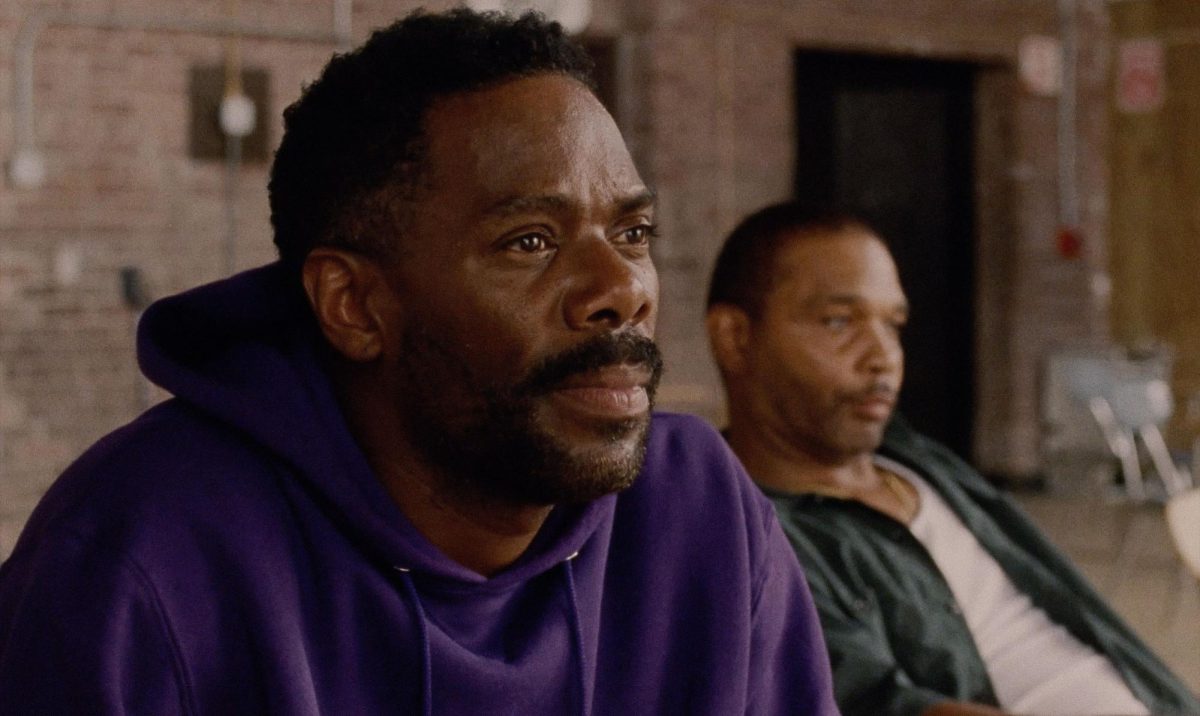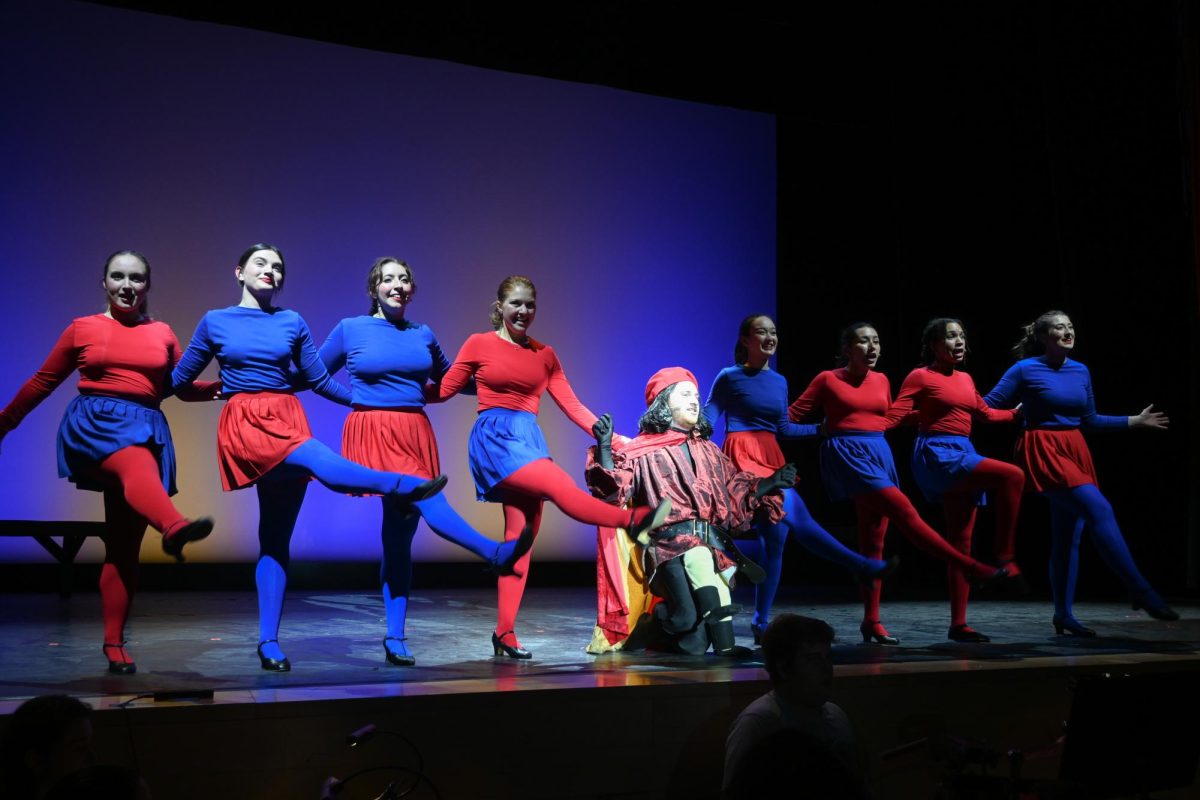Over 400 years ago, Shakespeare wrote, “Uneasy lies the head that wears a crown.”
Director, producer and screenwriter Greg Kwedar begs to differ. In his striking film “Sing Sing,” Kwedar asks, what about the head that wears a cowboy hat, or an ancient Egyptian headdress?
Creativity knows no bounds in Kwedar’s film, which is inspired by the true story of an original, time-traveling play performed by prisoners, “Breakin’ the Mummy’s Code.” Named after the high-security prison in Ossining, New York, “Sing Sing” features formerly incarcerated actors in order to share a timeless story about companionship, imagination and freedom.
The film’s ensemble cast truly shines — every cast member brings Kwedar’s story to life, whether it’s through humor or heartbreak. Starring Oscar-nominated actor Colman Domingo, the film sheds light on Sing Sing Maximum Security Prison’s Rehabilitation Through the Arts, or RTA, program, a tight-knit community that shows the healing powers of theatre and self-expression. The RTA crew is led by Brent Buell — played in the film by the invigorating actor Paul Raci — a headstrong, authentic director that knows how to get the ensemble motivated to perform. Buell adds character and humanity to the team of incarcerated men, inspiring them to think big and act their hearts out.
After performing monotonous renditions of Shakespeare plays, an underdog of the team recommends they perform a comedy. Combining elements of time travel from the Stone Age, the Roman Empire and even alluding to Shakespeare’s “Hamlet,” Buell writes a clever, original production for the ensemble to perform. Even amid a dreary prison setting, the ensemble is able to find the good in everything, a skill that does not come easily.
That underdog, Clarence “Divine Eye” Maclin (who plays himself in the film), grows and blossoms through RTA, while Domingo’s character, John “Divine G” Whitfield, a natural at more serious plays, seems to do the opposite as the film progresses. This evolving relationship between Divine G and Divine Eye serves as the foundation of the story, from a complicated connection to one of camaraderie.
“Sing Sing” made its debut at the Toronto International Film Festival, or TIFF, in September 2023. The Roxbury International Film Festival held a screening of “Sing Sing” at the Museum of Fine Arts on the closing night of this week-long festival in June 2024. The screening was followed by a panel featuring one of the film’s cast members, Dario Peña, alongside criminal justice reform advocate David Delvalle. Hearing Peña and Delvalle share their courage with the festival’s audience paralleled the ensemble’s strength and vulnerability among each other, and hearing from their actual experiences helped make the screening feel closer to home.
It may be obvious that the title of the film, “Sing Sing,” is a reference to the New York prison, but it’s hard not to envision a double meaning. Sing, sing. That faithful chant kept ringing throughout the film, adding a twang of hope to every character, every story. In this sense, Kwedar could be using the film’s title as a play on words, inspiring viewers to shine as bright as his ensemble.
Back in September at the TIFF, Buell made an appearance and worded it perfectly during a Q&A: “Theatre is the way of putting a person back together again and letting them discover who they are.” “Sing Sing” has the power to bring its audience to tears as it reframes our perspective on our personal freedoms through adversity, especially in a place as dark as the prison system. As a member of the ensemble said in the film, “We’re [part of RTA] to become human again.”





















